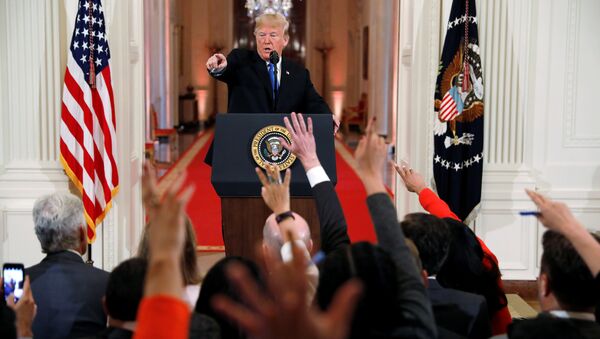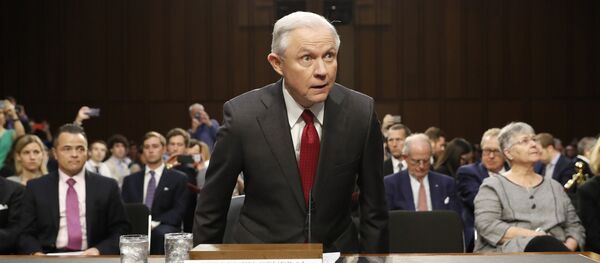Radio Sputnik's Loud and Clear spoke with Jacqueline Luqman, co-editor-in-chief of Luqman Nation, about what the two major political parties might do with Tuesday's results and whether or not that would help or hurt the president and his agenda.
Despite this, Tuesday night, after winning her own reelection and verifying her party's control over the House, Pelosi indicated her willingness to reach across the aisle, promising she "will work for solutions that bring us together, because we have all had enough of division."
"I think I'm the best person to go forward, to unify, to negotiate," she said. Trump, in turn, backed her bid for House Speaker.
In the Senate, Republicans solidified their majority. As of Wednesday night, they only had 51 seats verified in the 100-person chamber, but two senators are Independents, and the Mississippi election will require a second-round runoff, since no candidate won a majority, the New York Times reported.
Notably, Republican Sen. Ted Cruz retained his seat in a close contest against up-and-comer Beto O'Rourke; Democrats needed to win Cruz's seat to flip the chamber. Further, Republican Mike Braun beat incumbent Democrat Joe Donnelly for one of Indiana's senate seats.
As the upper legislative chamber, the Senate is tasked with judicial oversight, verifying appointees to judges' seats, including the US Supreme Court, as well as overseeing treaties with foreign powers and the diplomats who negotiate them, meaning, as Luqman pointed out, the Republicans can exercise effective control over the political makeup of the country's judiciary for "a generation and a half" — long a part of conservative political strategy.
Luqman said the Democrats in the House would use their new-found majority to forward their long-desired investigation of the president. Not on alleged Russian collusion, though. Luqman predicted the Democrats would "abandon the Russia narrative because that's been dragged out for so long, and that's turned up pretty much big ‘goose eggs,' so I think they have enough egg on their face for that." Instead, she suggested they would push for his tax returns and dig into the Trump family's financial dealings.
"I don't see a lot of movement on real substantive policy from people; we're not going to look at a Democratic majority in the House that's going to push for a reduction in defense spending; we're not looking at Democrats who are going to push for scaling back military bases around the world. They're not going to challenge Trump on supporting the reunification on North and South Korea. They're not going to push Medicare For All. They're not going to get behind these issues that their base needs and elected them to do."
Luqman said she thought the election was a victory for the Republicans, noting that the Democrats and Trump agreed on one major thing: the midterms would be about Trump. However, Luqman argued that this didn't turn out to be the case. "This was not the great referendum against Donald Trump that the Democrats said it was going to be," she said, noting that the "blue wave" simply didn't materialize, especially in state and local races that had little to do with the president and where having an R next to your name doesn't automatically equate you with Trump.
"That," Luqman said, "is a win for Trump."
John Kiriakou, who co-hosts the show with Brian Becker, concurred with Luqman, noting that one important arena had not yet been totally decided: state legislative elections had not yet fully been counted. This is extremely important because following the upcoming 2020 census, congressional districts will be redrawn by the state legislatures, leaving the opportunity open for gerrymandering, the unfair crafting of district borders to favor one party over another.





